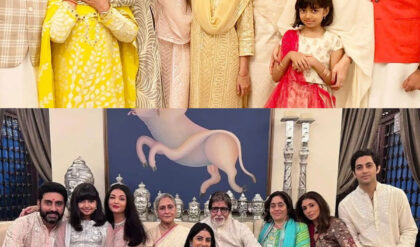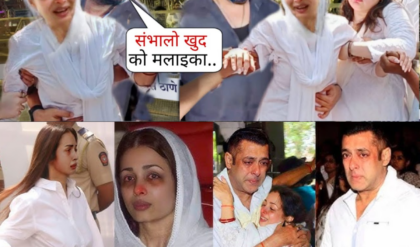In a rare show of unity, Bollywood icons Jaya Bachchan and Aishwarya Rai have made headlines for their firm stance on being addressed by their own identities, independent of their husbands’ names. This issue, often discussed in the context of gender identity and respect for individual achievements, has brought together two powerful women from the Bachchan family, who are usually the subject of rumors about their disagreements.

Jaya Bachchan, a veteran actress and active politician, recently expressed her frustration during a session in the Rajya Sabha, India’s upper house of Parliament. When referred to as “Jaya Amitabh Bachchan,” she passionately corrected the address, insisting that she is “Jaya,” not “Jaya Amitabh Bachchan.” Her reaction was a strong statement against the practice of identifying women by their husbands’ names, emphasizing that every woman has her own identity that should be respected.
Interestingly, Jaya’s daughter-in-law, Aishwarya Rai, a global icon and former Miss World, had a similar experience in the past. During an interview, Aishwarya was referred to as “Aishwarya Rai Bachchan,” which led her to express her displeasure. She firmly stated that she should be called “Aishwarya Rai” and that her professional identity should not be overshadowed by the Bachchan surname. On another occasion, Aishwarya also reacted strongly when called “Bachchan Bahu” (Bachchan daughter-in-law), reiterating her preference to be known simply as “Aishwarya Rai.”
Full Video:
This alignment of views between Jaya Bachchan and Aishwarya Rai marks the first time they have publicly shared a common stance on a significant issue. While the media has often reported on their alleged differences, this moment showcases their solidarity in advocating for the importance of individual identity for women.
The conversation sparked by these incidents raises important questions about how society perceives women, especially those in the public eye. Both Jaya and Aishwarya’s insistence on being recognized for their own accomplishments, rather than being defined by their marital ties, sends a powerful message about respect and equality.
As these two influential women stand united on this issue, it invites broader reflection on how names and titles are used to either empower or diminish an individual’s identity. The public has been encouraged to engage in this conversation, with the video in which these incidents are discussed asking viewers to share their thoughts in the comments section.
This development is a significant moment in the ongoing dialogue about gender, identity, and respect in India and beyond.





